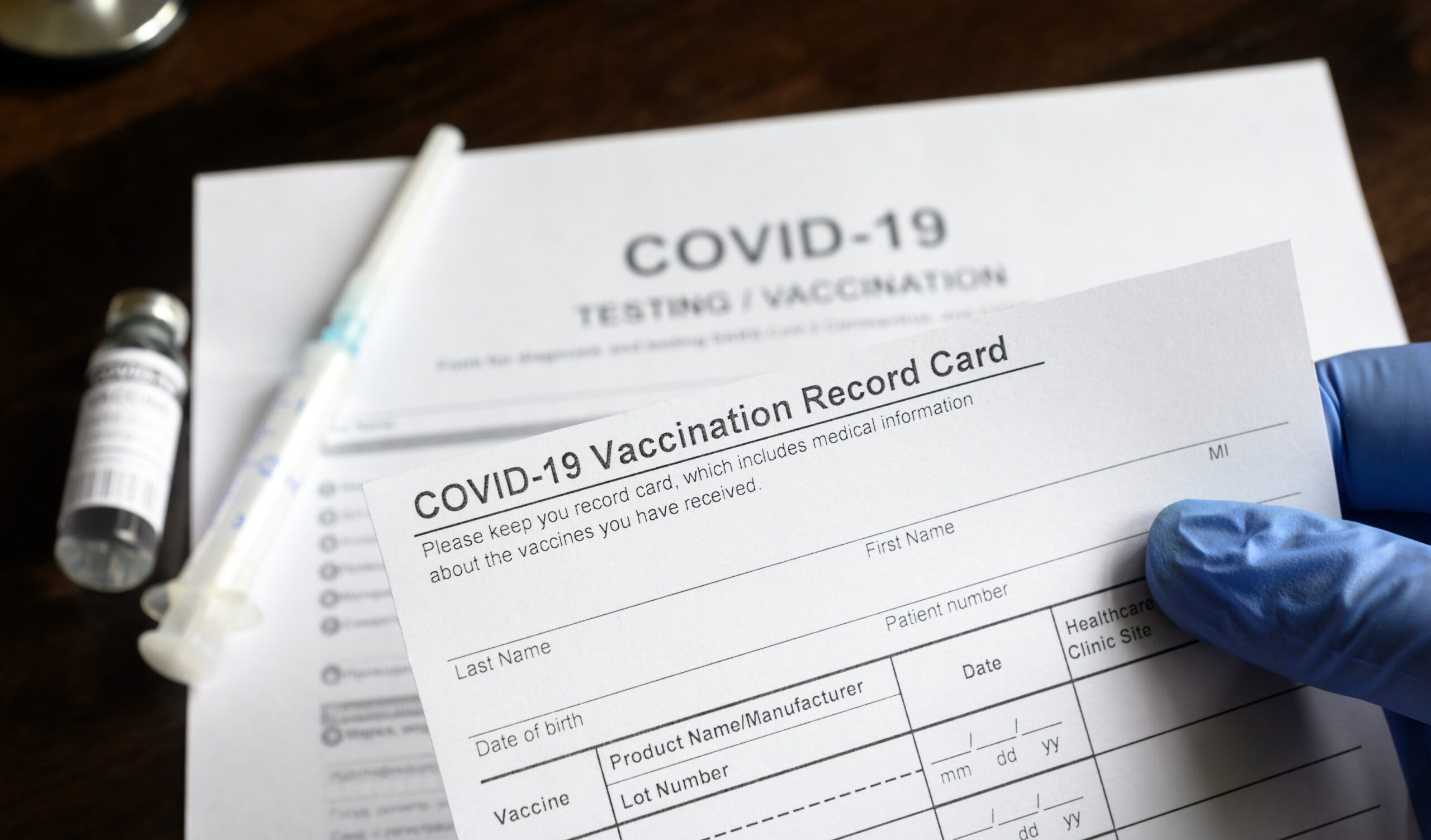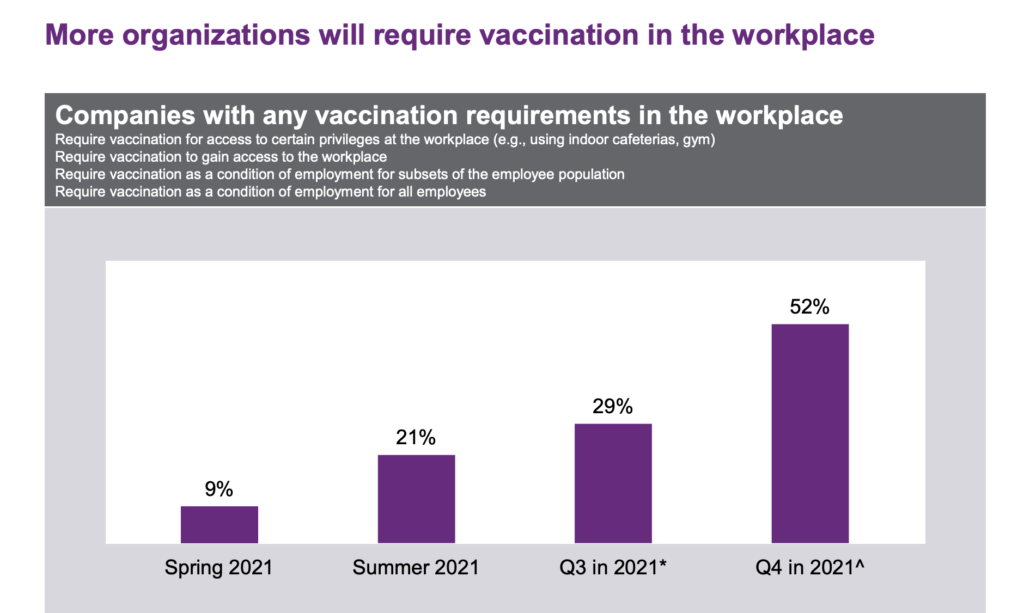Report: Surge in organizations that require worker vaccinations is coming
Employers will also experiment with incentives to encourage vaccinations, according to a Willis Towers Watson survey.

COVID-19 Vaccination Record Card in doctor hand, coronavirus test and vaccine medical form on desk in clinic. Concept of corona virus vaccination certificate, health passport and immunization.
The number of U.S. employers requiring workers to get vaccinated is expected to surge over the next several months, according to a new survey by Willis Towers Watson. At the same time, organizations will be experimenting with financial incentives to encourage employees to get vaccinated, and expanding testing requirements as they move to reopen worksites.
By the fourth quarter of this year, 52% of employers could have one or more vaccine mandate requirements in their workplaces, the survey findings indicate. That represents a dramatic increase from the current 21%. Mandates could include allowing only vaccinated employees to access common areas such as cafeterias, or requiring vaccination as a blanket policy.
A total of 961 U.S. employers participated in the survey, which was conducted between August 18 and 25, 2021. Respondents employ 9.7 million workers.
In addition, nearly a third (29%) of employers are planning or considering making vaccination a requirement to gain access to the workplace, and almost a quarter (21%) are planning or considering vaccination as a condition of employment for all employees.

What’s more, nearly six in 10 employers now track their workers’ vaccination status, and another 19% are planning or considering doing so later this year, according to the survey. Most (62%) require proof of vaccination, while 36% rely on employees to self-report. “The Delta variant has made employers take new actions to keep their workers and workplaces safe and healthy,” says Dr. Jeff Levin-Scherz, population health leader, Willis Towers Watson. “We expect even more employers to institute vaccine mandates in the wake of FDA approval of the Pfizer vaccine.”
Levin-Scherz notes that the situation is challenging for employers. For instance, policies such as tracking workers’ vaccinations bring additional administrative requirements and perhaps exposure to litigation.
Meanwhile, 17% of respondents offer financial incentives for getting vaccinated, with another 14% planning or considering doing so. Cash payments from $100 to $199 are the most common financial incentive, survey respondents indicate. Only 2% of employers currently offer an insurance discount to vaccinated employees or impose a premium surcharge on unvaccinated employees. Another 18% are considering one or both approaches. Most employers at this point are not planning or considering either of these financial tactics.
The survey identified the following actions organizations are taking or considering.
· Mask mandates: Eight in 10 respondents (80%) require employees to wear masks indoors at any location. Another 13% are planning or considering doing so.
· Tracing: Three in four employers (75%) use workplace exposure tracing to alert employees to a potential exposure. Another 8% are planning or considering doing so.
· Return to normal: Nearly four in 10 employers (39%) now expect their organizations won’t reach a new normal in terms of returning to the workplace and ending pandemic-related policies and programs until the second quarter of 2022. About a quarter (26%) expect a return to the new normal in the first quarter of next year.
“We have reached a point in the pandemic where employers that have worked hard to make it easy for employees to get vaccinated are also considering approaches to make it more difficult for employees to remain unvaccinated,” Levin-Scherz, says. “The one certainty right now is that employers will continue to adjust their plans through the remainder of 2021.”
COMMENT
Ragan.com Daily Headlines
RECOMMENDED READING
How I got here: Joel Johnson on the key to excellence in storytelling
How to beat boredom and recapture the joy of writing
Tags: contact tracing, covid insurance premiums, Jeff levin-scherz, msk mandates, q4 plnning, requirements for return to work, research, return to workplace, vaccination, vaccination mandate, Willis Towers Watson






